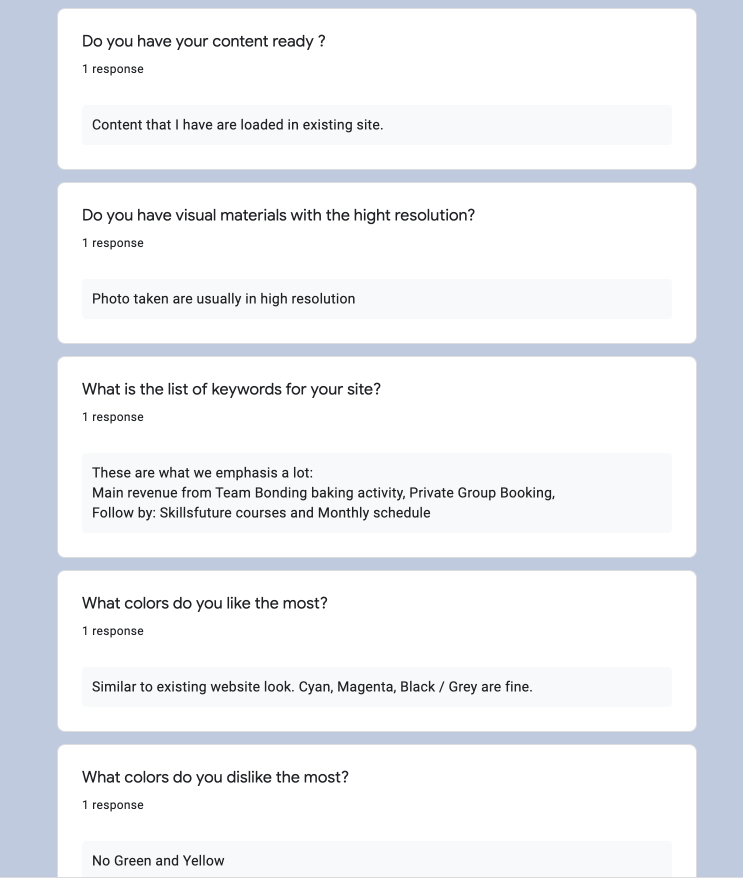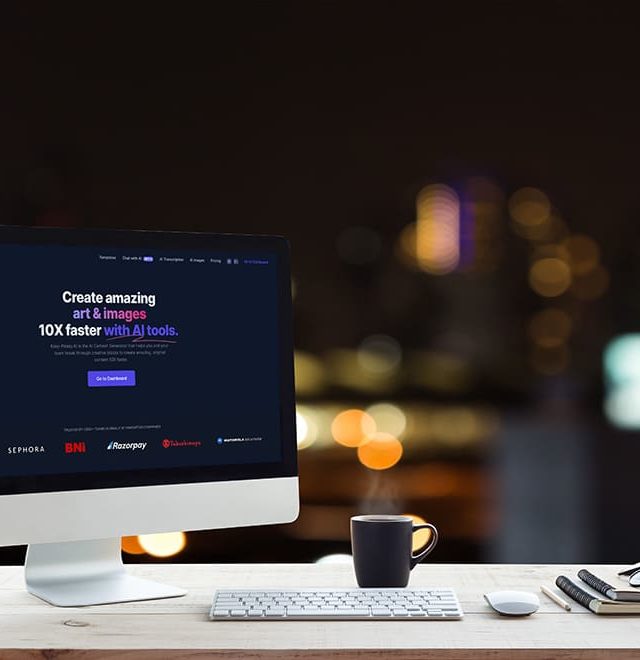
Navigating challenges with client-centric payment solutions
Do small businesses care about users?
And what challenge I faced with a third party integration
Problem
Some of us want to learn how to cook for the family, or we want to gain baking/cooking skills for a future business or profitable engagement using the basic tools and equipment and having a hands-on practice class. But we do have not much time and other sources to take a culinary education. And there is a wide range from novice-level lessons suitable for baking enthusiasts with little or no baking experience to advanced-level classes who wish to enhance their techniques. It is challenging to choose and understand what recipes and methods are the best.
Objective
We will help users who want to improve their culinary knowledge and skills to enroll in cooking classes. We practice transferring the skill to their home kitchen that will fill their family bellies and warm their hearts.
Idea
To organize pastry selection for an individual hands-on baking class booking, with a small class size which allows participants to have a direct experience of the entire baking journey. Integrate the site with a third party platform for the broader users arrangement.
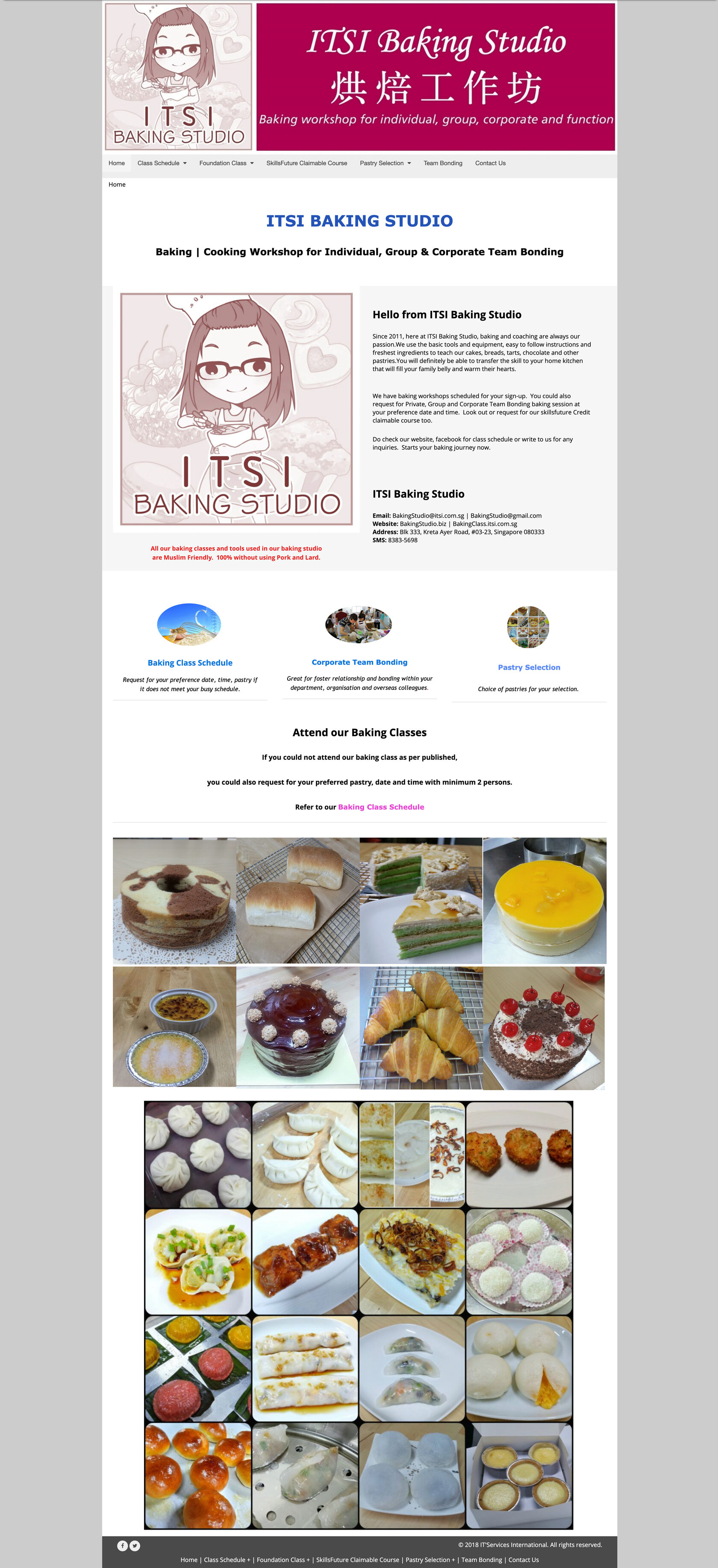
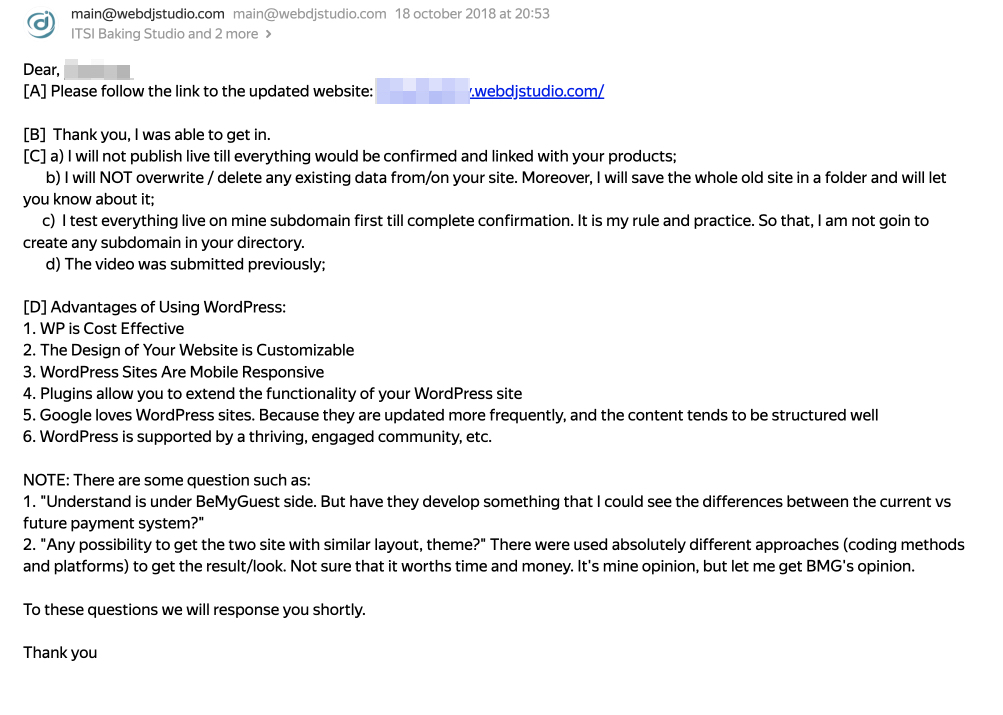
What I did:
- Stakeholder interviews
- Site audit
- Establishing key audiences
- Research
- Building personas
- Creating user journeys and stories
- Creating site maps
- Conducting competitive research
- Content audit and Content strategy
- Creating wireframes
- Usability testing
- Measuring and Iteration
- Detailed design
- Graphic design
- Photo editing
- Site launch
- Post-launch testing
- SEO Start with Google Search Console set-up
- Google Analytics set-up
UX Competitor Analysis
- How is your cooking class different and better than others? That is to say: why do customers choose your class over others?
- On what deserts and pastry will you focus?
- What are the techniques you are planning to teach and incorporate in your course?
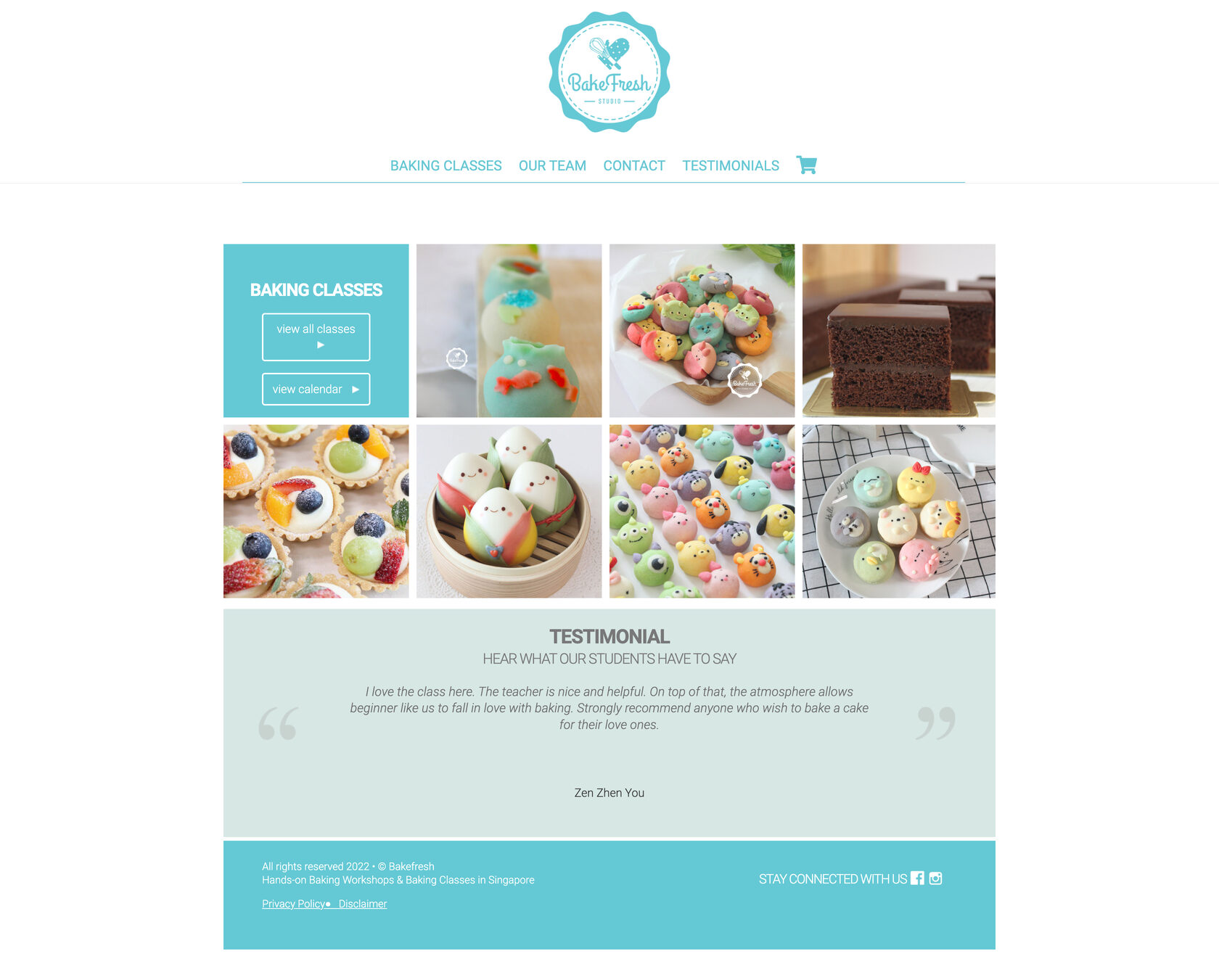
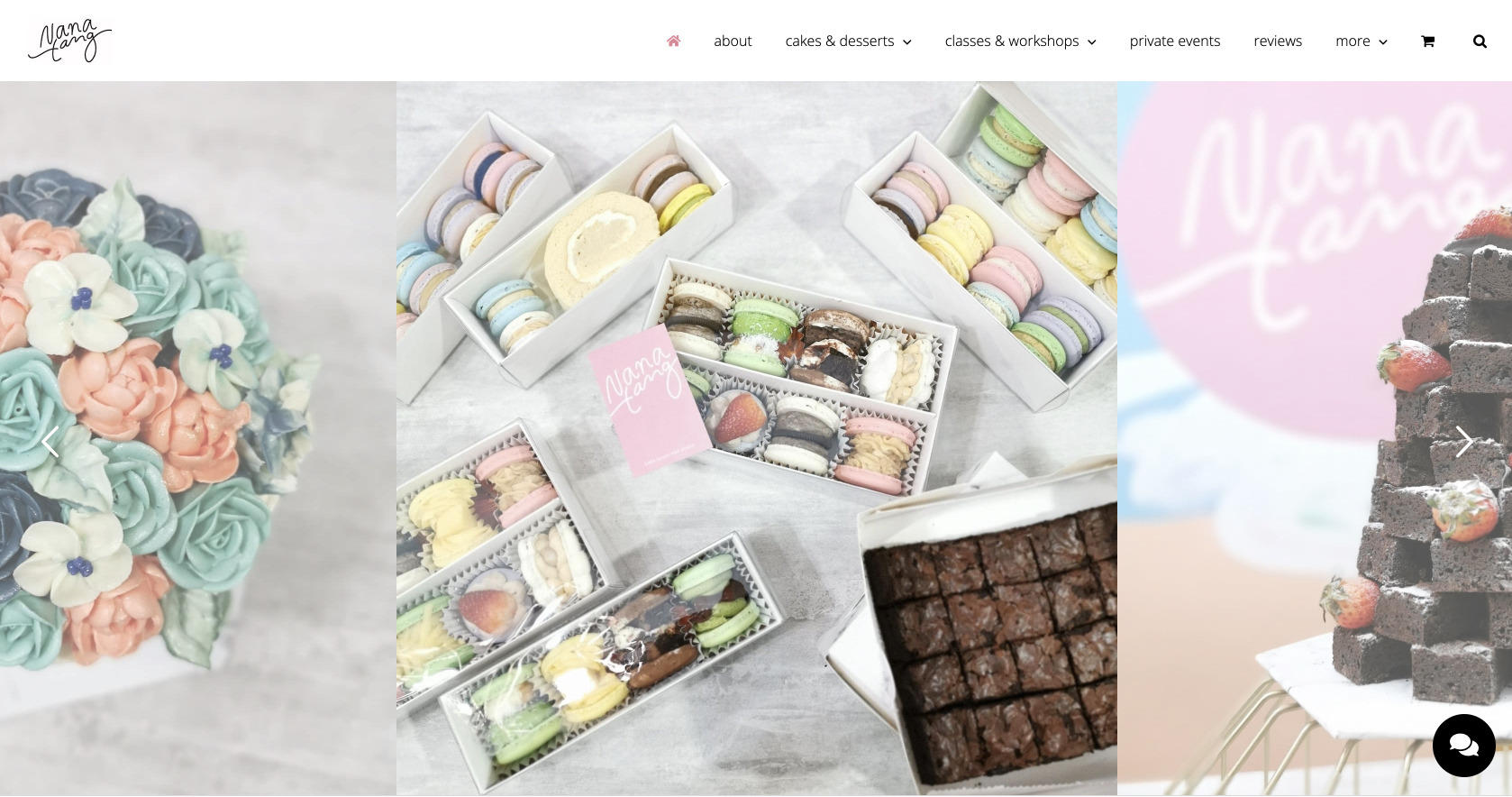
Competitors: baking classes providers near Outram MRT (with 3 km radius)
I analyzed competitors:
– to see the top pages on competitors’ websites;
– to reveal your rivals’ top web pages, including cart, trial, and checkout success pages;
– to spot new landing pages that competitors promote;
– to see your competitors’ most popular products, services, and categories.foodplayground.com.sg
kitchenshowdown.com.sg
creativeculinaire.com
jialeicookingschool.sg
bakefresh.com.sg
nanatang.com
Aside from that, however, there are some other important reasons:
- To solve usability problems,
- To understand where the service stands in the market,
- To know the strengths and weaknesses of the competition,
- To focus efforts on a target audience.
Establishing Key Audiences & Building Personas
Who are they?
Cooking classes open up a broad field for many reasons. They are fun, relaxing, inspiring, artistic but still teaching us useful skills for life. The intriguing nature of cooking itself allows you to target every gender, age, and ethnicity. In this business you are not restricted to people who are into cooking but rather can also challenge those who love decorating, growing veggies, exercising, or even socializing.
How do they find information?
Social media channels (FB, Instagram, Pinterest) are the best to find loyal brand followers and increase the number of cooking class attendants. Users are curios about shared behind-the-scenes photos/videos or a short bio of previous participants.
What channels can be used?
1. Instagram is the place gathering professionals from all backgrounds. Offering a paid partnership to a popular influencer would lead to a massive boost in sales.
2. Since Google ads can be shown on the Google Display Network and Youtube so why not create a short video promoting the best features of your class.
3. Promotion strategy via FB account.
What do your users want?
Your users are looking for fun and relaxing, while getting inspiring and useful skills for life.



Solution
Based on our interview and research results, I suggested possible solutions:
- Interactive website design on the WordPress platform;
- UX improvements;
- The third party platform integration;
- Content (images) process;
- Planing and set up of a payment system
The Stakeholder was suggested to set up the booking of her classes on the third party platform, having a functional online booking system.
As an additional option, I suggested providing booking on her website via Woo Commerce plugin to properly track the available spaces by taking into account any sales that happened offline or through an external system.
Content Strategy
Include the essential content
With a solid strategy, each content on your website will have a specific purpose and target audience. People use the Internet to discover information on baking classes. Your website content educates prospects about trends in baking classes and local culinary traditions.
These are some of the content essentials to include on your website:
– Services/capabilities information
– Client testimonials
– Portfolio of pastries (classes)
– Compelling gallery
– Team bonding service
– Easy booking
– FAQs
– Videos (can feature business culture, client testimonials, etc.)
The structured content and the proper site hierarchy brought good user behaviour results even during the first month after the site launch.

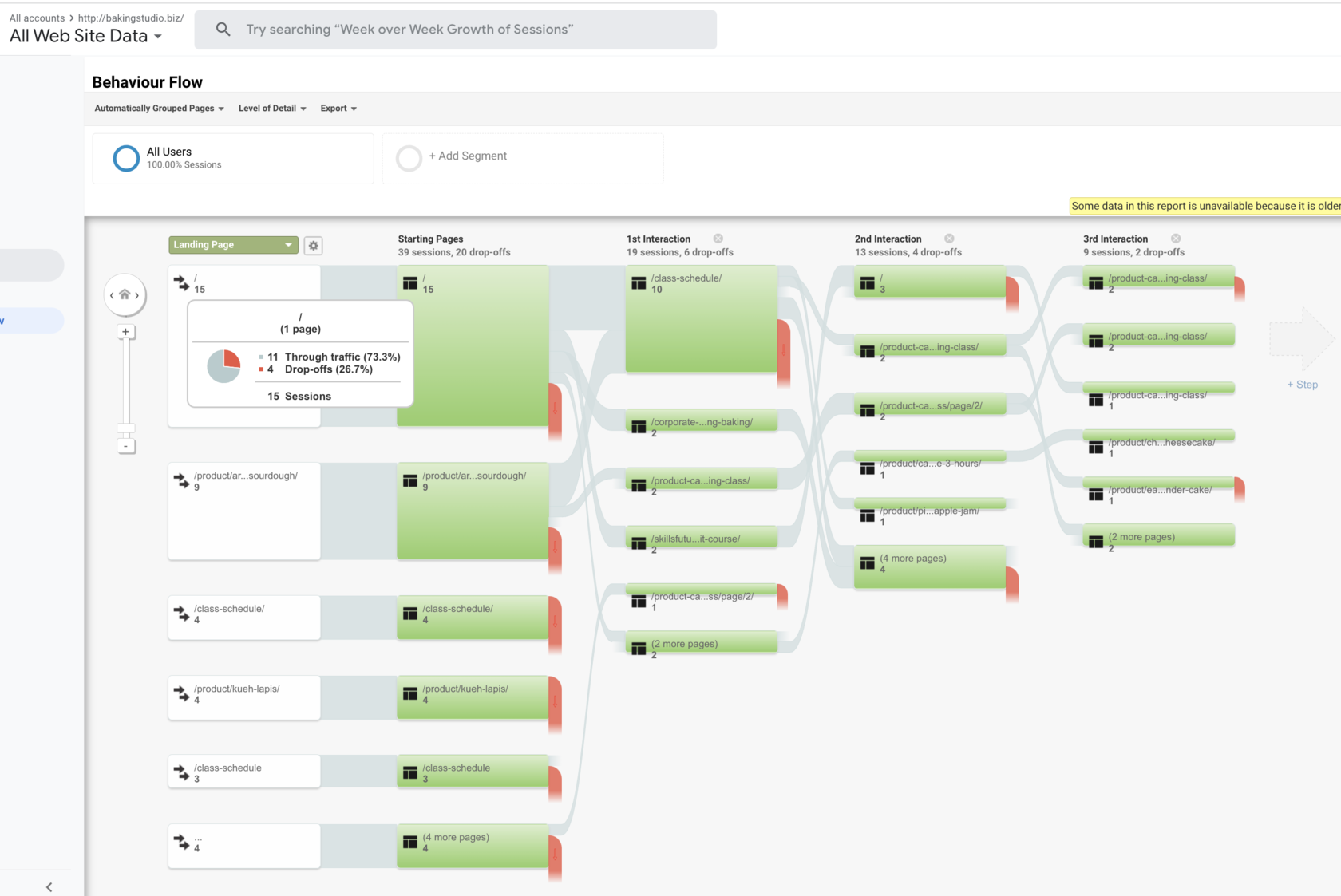
Sketching & Prototyping
Benefits of Sketching and Wire-framing:
- Validate assumptions
- Discover problems early
- Brainstorm ideas
- Design more iterations
- Conduct early usability testing
- Cheaper & faster to implement
- Explore alternatives
- Helps communication between the team
- Ensure the right thing is being designed
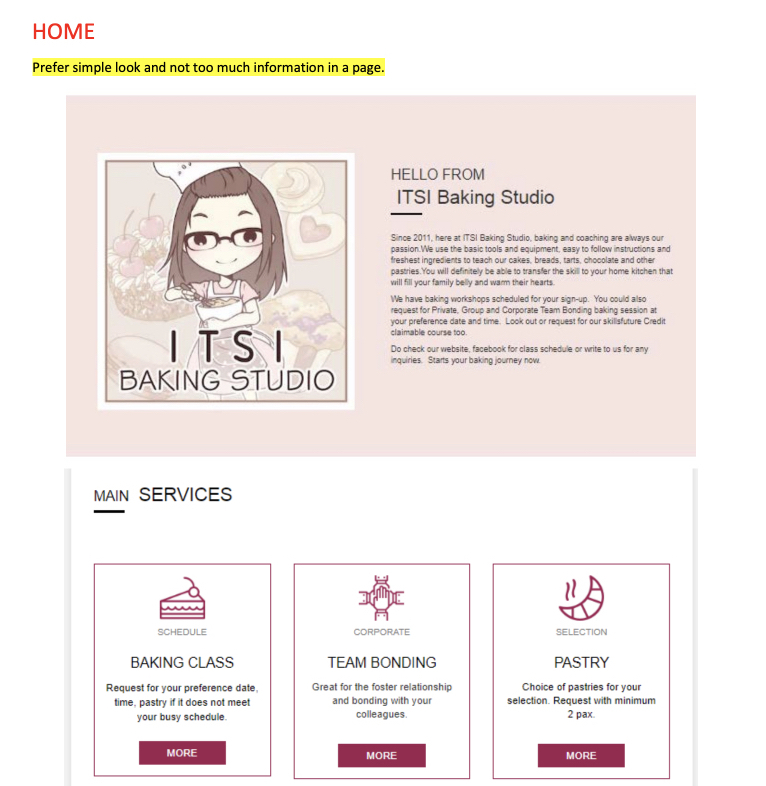

Validation (Testing)
It is quite simple – if you change the design late in the process, then it will typically cost ten times more than if you changed it during the requirements stage. Analysis and feedback are critical. User-centered design makes sure that you design and develop products right from the beginning, exactly what your clients want.
We tested prototypes:
- to ensure customer satisfaction;
- to be confident about the service;
- to fulfill the client’s requirement until the optimum capacity;
- to get design acceptance from the end-user.
Design and Implementation
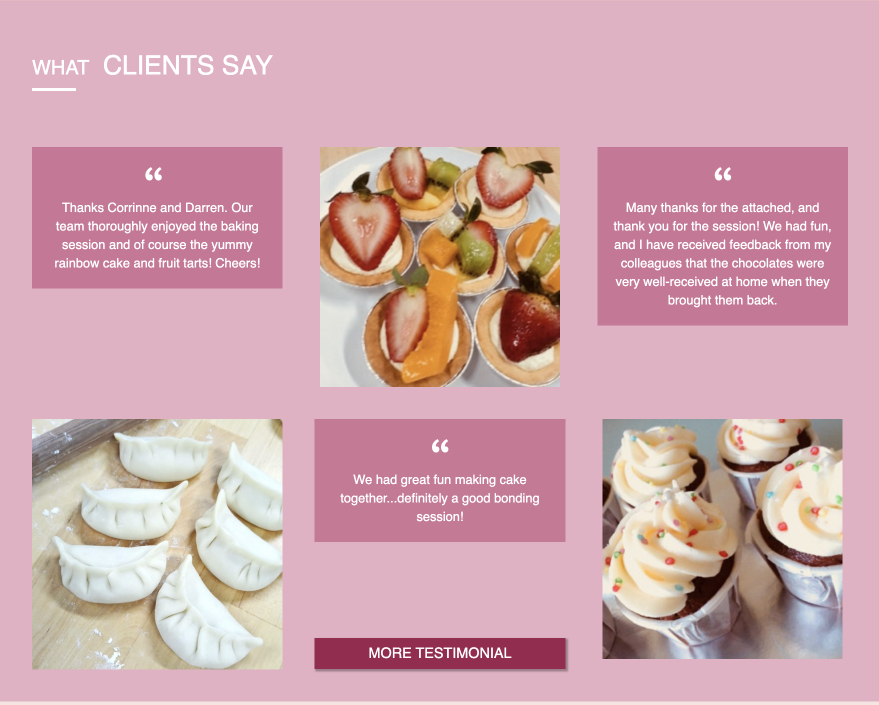
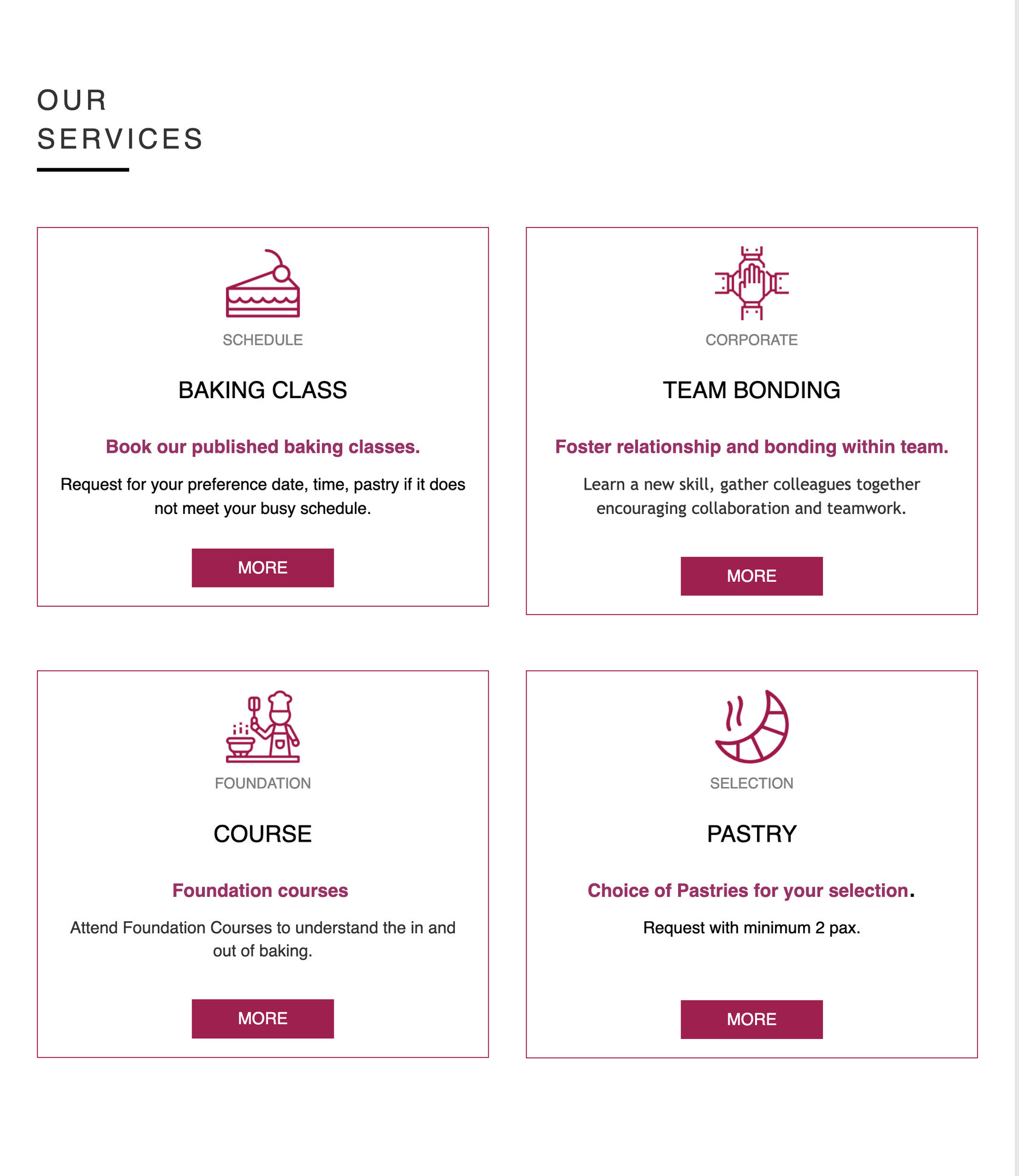
Measuring and Iteration
Website performance is incredibly important because customers generally think load times are slower than they actually are.
The fact is 46% of shoppers say they’ll never return to a slow website.
High-performing sites engage and retain users better than low-performing ones.
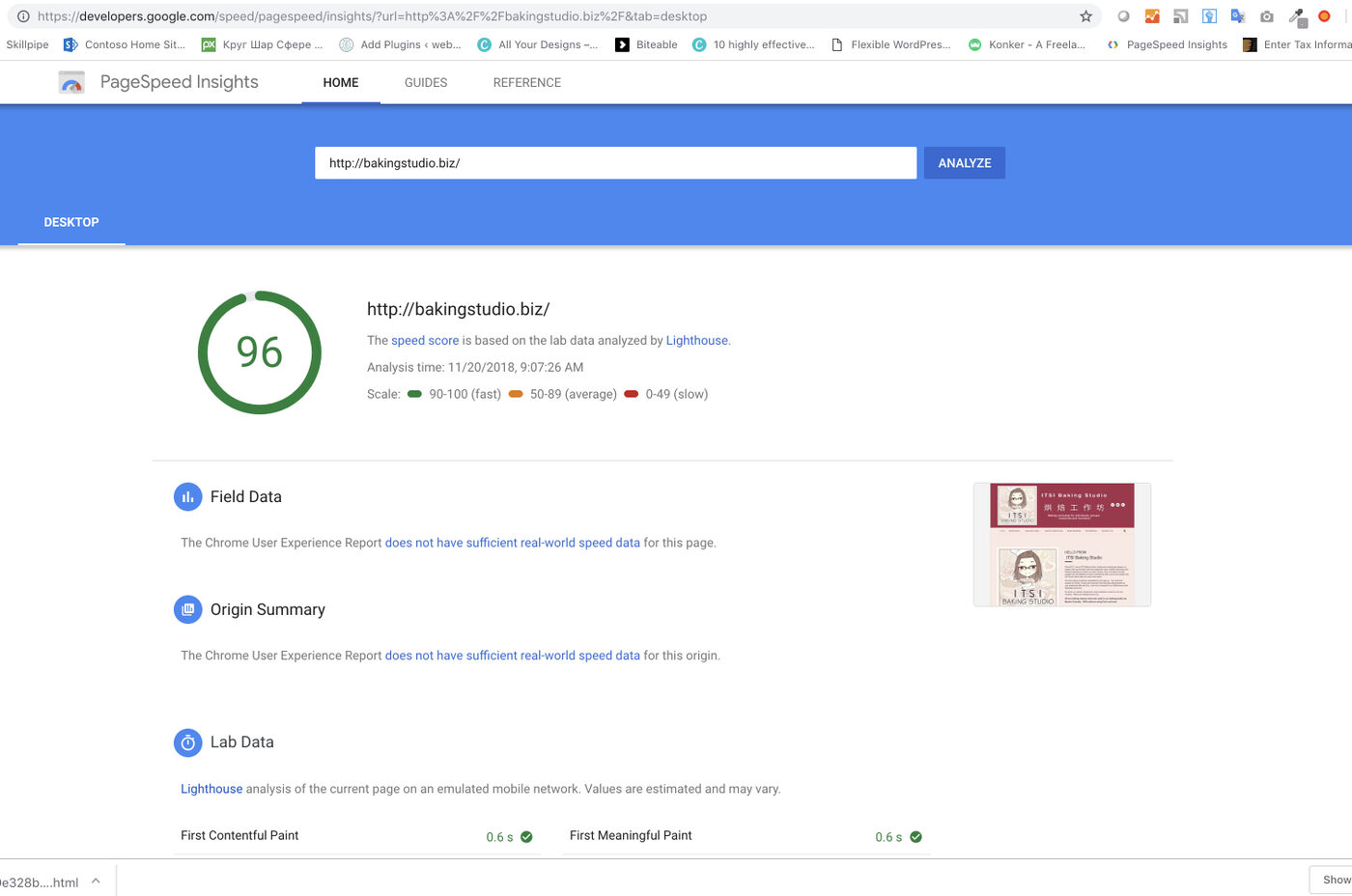
Achievements
Please see the data on screenshots stated below.Organic Search – 2512 Users
Average session duration – 3.01 sec
Bonce rate – 44.25%
Returning sessions – 28%
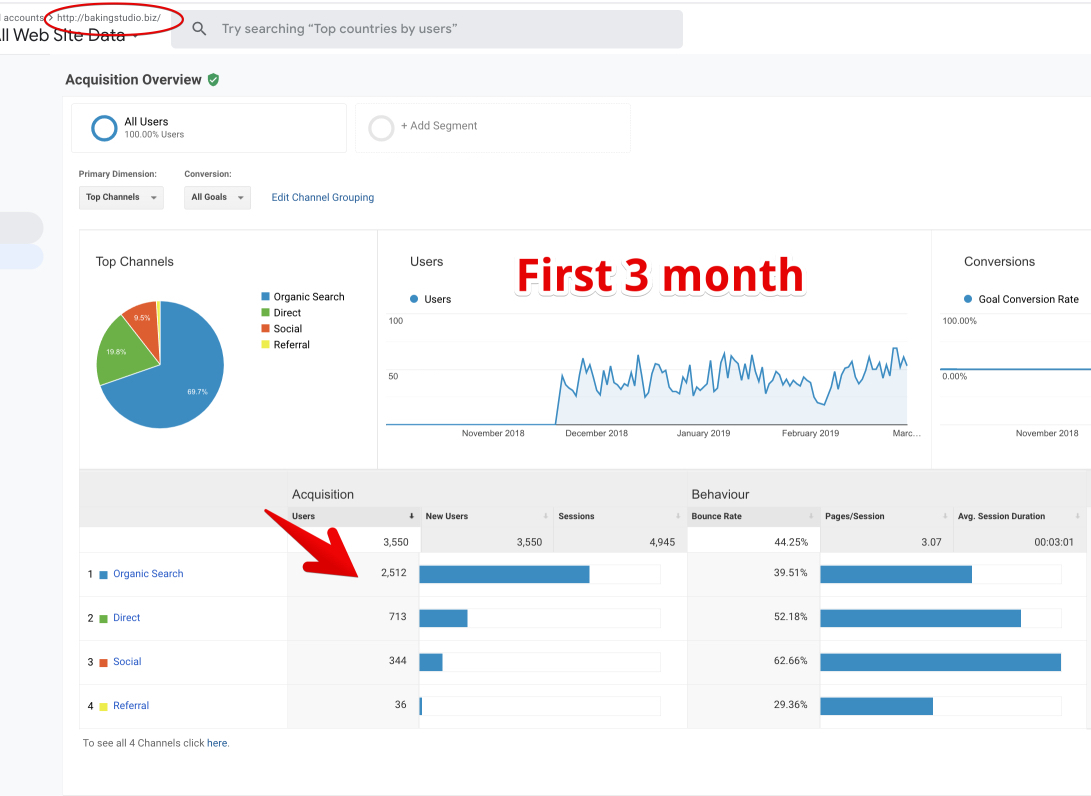

Lesson & Takeaway
The main challenge and lesson learned:
The stakeholder was more User-Centered and wanted to provide more payment options convenient for the end-user. Meanwhile, the third party was interested in its product promotion and could not deliver the payment system entirely suitable for users.
The Takeaway:
Do small businesses care about users? – Yes, they do.
They know their users, and all their pains. The stakeholder was ready apply the best solutions for design and payment system to satisfy her end-users.
When your outcome depends on the third party agreement, it’s difficult to predict all scenarios.
It is necessary to clearly define the areas of responsibility of the parties and build the correct hierarchy of interaction with each other to achieve the goal and fully satisfy the client.


